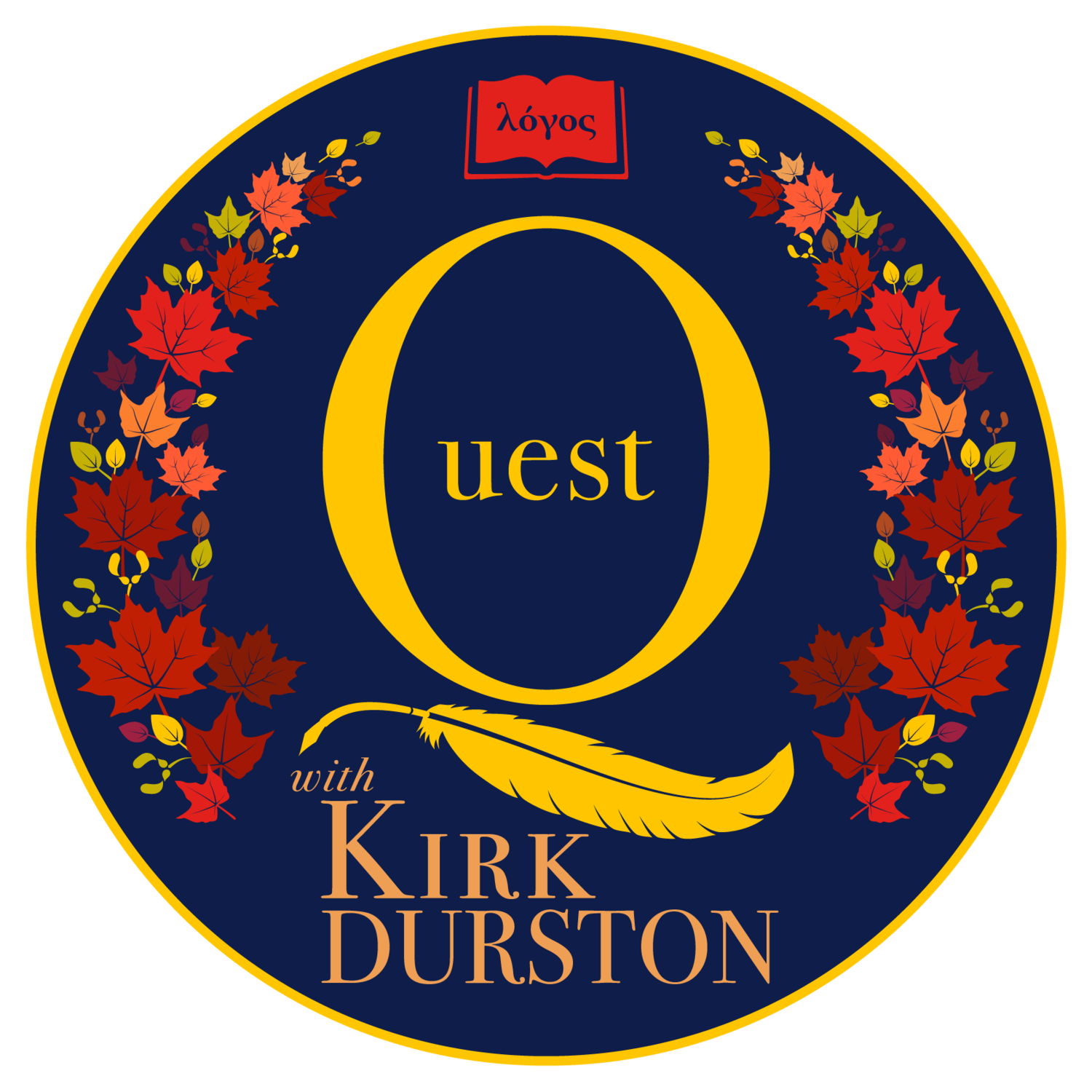Faith and Science: Part I -- Experimental science and implications for faith in science and God
An Alchemist in His Laboratory by Balthasar van den Bossche (1681-1715)
I stood in the Assiniboine Conservatory parking lot holding my newly-minted B.Sc. degree in Physics. I had a student summer job with the geological survey in the nickel-belt region of northern Manitoba, so could not make it to my convocation. Upon my return to Winnipeg, a friend met me in the parking lot and handed me the parchment in an envelope.
A nice thing about being young is that you have no idea how much you do not know.
A fresh physics degree, fuelled by youth and naiveté, led me to believe I had a pretty good idea how the universe works. At that point, I regarded science as the gold standard for finding truth. Many more years in the halls of science would quietly lay to rest that piece of sadly misplaced faith.
Modern science can be divided into three major categories … experimental science, inferential science, and science fiction. This post focuses on experimental science and faith.
Experimental science
I have three things to say about experimental science:
Every technological benefit science has given us, without exception, has come from this category of science
I am not aware (and I’ve thought long about this) of a single conflict between faith in God and experimental science.
Even experimental science, trustworthy as it is, has a warning to give us about “believing” in science.
Benefits of experimental science
Upon graduating with my next degree in mechanical engineering, I worked for Pratt & Whitney, in a group of engineers responsible for the build and test of experimental aircraft engines. There were thousands of hours of testing, tweaking designs, and more experimental testing until the engine was reliable, safe, and certifiable. I have since flown on several aircraft that use that engine.
I define experimental science as the process of real experiments and observations that give actual results, which can be published, reproduced, and verified by other scientists. Because experimental science gives results that can be tested by third parties, it has a very high level of accountability. It is, therefore, very trustworthy provided it is honestly done (more on that below).
All the material benefits of science we enjoy today, from smart phones, to flat-screen TV’s, the international space station, vaccines, medical advances, and all of modern technology, are the result of experimental science. To clarify, all these things are the end result of testing and experimentation that gave real results that could actually be used to advance our modern technology and quality of life. As we shall see in Parts II and III, the other two major areas of modern science, unless united and verified via experimental science, have contributed nothing to 21st century technology. This is a strong claim, but I think parts I and II will clarify why I suggest this.
Experimental science and faith
Many years after receiving my first degree in the parking lot, I walked out the front doors of Rozanski Hall at the University of Guelph into a warm, spring day, having just successfully defended my Ph.D. (Biophysics) thesis. What a feeling of freedom after years of work!! Having spent decades in the sciences, and countless discussions of science and faith, I realized that I have never encountered a single example of conflict between experimental science and faith. Instead, experimental and observational science compliments faith in God. As I have argued elsewhere, logic requires a non-natural cause for nature, and God has created the laws of physics that govern the cosmos and the earth.(1). God has, therefore, made science possible and encourages it. As it states in Psalm 111:2 …
Great are the works of the Lord. They are studied by all who delight in them.
Experimental and observational science is our tool to understand how nature works. Tension between science and faith arises from inferences and assumptions made in the other two categories of science that I will discuss in subsequent posts. Experimental science is the gold standard. It is the heart of science and represents what science should be.
A warning from experimental science
In 2012, the science journal Nature, published an article revealing that out of 53 landmark papers in cancer research, only 11% could be reproduced.(2) Five years later, an article in Nature found that after “numerous studies … failure to replicate published findings is the norm.”(3)
Note the phrase, “is the norm”.
Another Nature article found that the top two reasons were “selective reporting” and “pressure to publish”.(4)
As the Nature article put it, “In the competitive crucible of modern science, various perverse incentives conspire to undermine the scientific method, leading to a literature littered with unreliable findings.”(3) The problem is not with experimental science; it is with human nature under the influence of pressure to publish, the desire for academic advancement, and competition for funding. Where the funding goes, so goes the corrupting influence of human nature. At present, two major funding areas are cancer research and climate change. If you wish to see where human frailty experiences the greatest pressure, follow the funding.
In the midst of this, however, it must be strongly emphasized that there are countless scientists who are committed to the highest standards possible. My Ph.D. supervisor, for example, required impeccable and meticulous standards, and was an inspiration to me. This was driven home one day when we were going over a paper I was submitting for publication. He noticed the word “suggests” in my conclusion. He asked, “do you have data to support this?”. I said, “No, it’s just an inference.” He replied, “Then take it out.” I very much appreciated his raising the bar and remember it often.
Here is the take-away warning
Because experimental science publishes its results, exposing them to possible verification, potential accountability is very high … much higher than in the other two categories of science to be discussed in subsequent posts. If the results of experimental science are so badly prone to corruption by human nature where accountability is extremely high, then the implications for the other two categories to be discussed, where accountability for inductive inferences to conclusions that cannot be experimentally reproduced is absent, are obvious. As we shall see in parts II and III, challenges to faith come from other branches of science that, themselves, have a substantial accountability problem, requiring us to exercise careful, critical thinking and analysis.
Go to Part II: Inferential science - What can go wrong?
References:
Job 38:33
Raise standards for preclinical cancer research, Nature, 2012
Metascience: Reproducibility Blues, Nature, 2017
1,500 scientists lift the lid on reproducibility, Nature, 2016
Further Reading:
Can anything really stop the science spin snowball?, PLOS|Blogs, July, 2019.
A waste of 1,000 research papers, The Atlantic, May 2019.
Two New Studies Demonstrate How Not to do Science, RealClear Science, May 2019.
Is science broken? Major new report outlines problems in research, Gizmodo, May 2019.
Science has a problem. Here is how you can help, Sabine Hossenfelder, March 2019.
Rein in the four horsemen of irreproducibility, Nature, April, 2019.
‘The replication crises is good for science’, The Conversation, April 2019.
”Severe” figure manipulation found in studies from leading plant lab’, Nature, Sept. 2018.
‘What is threatening science?’, Project Syndicate, by Jeremy Baumberg (nano-scientist, University of Cambridge), Sept. 2018.
‘Academic Activists Send a Published Paper Down the Memory Hole’, Quillette, Sept. 2018. See also ‘A twice-retracted paper on sex differences ignites debate’, Sept. 2018.
JAMA Journals Retract Six Papers by Cornell Researcher, The Scientist, Sept. 2018.
Sabine Hossendfelder, ‘Science has a problem, and we must talk about it’, Sept 2018.
‘No more excuses for non-reproducible methods’, Nature, 2018.
‘Replication Failures Highlight Biases in Ecology and Evolution Science’, The Scientist, August, 2018.
‘35,000 papers may need to be retracted for image doctoring, says new paper’, Retraction Watch, June 2018
‘Scientists Rarely Admit Mistakes. A New Project Wants to Change That’, UNDARK, July, 2018.
‘Opinion: We Must Demand Evidence of Peer Review’, The Scientist, May 2018.
‘Nature says it wants to publish replication attempts. So what happened when a group of authors submitted one to Nature Neuroscience?’ A fascinating, three-part, behind-the-scenes account of how Nature Neuroscience, refused to publish a paper that reported the failure to replicate a landmark paper that had previously been published by Nature Neuroscience, despite the fact that attempts to replicate the paper was performed by 9 labs, Retraction Watch, May 2018.
‘Recognizing “Spin” in the Scientific Literature’, PLOS Blogs, May 2018.
‘NAS Launches New Report: “The Irreproducibility Crisis of Modern Science” ‘, National Association of Scholars, April 2018.
‘Scientists aim to pull peer review out of the 17th century’, Shots:Health News from NPR, Feb 2018.
‘We should not accept scientific results that have not been repeated’, Nautilus, Feb 2018.
‘Best-selling introductory Psychology books give a misleading view of intelligence’, The British Psychological Society Research Digest, March 2018.
‘Prestigious Science Journals Struggle to Reach Even Average Reliability’, Frontiers in Human Neuroscience, February, 2018.
‘Most insect studies lack crucial species information’, Nature, (2018)
‘Definitely embarrassing”: Nobel laureate retracts non-reproducible paper in Nature journal’, Retraction Watch, December 2017
‘Spin’ in published biomedical literature: A methodological systematic review, PLOS Biology, Sept. 2017
‘Science spin prevalent, researchers warn: Extent of spin in biomedical papers revealed’, Science Daily, Sept. 2017
Sabine Hossenfelder, ‘Research perversions are spreading. You will not like the proposed solution’, Backreaction, December, 2017.
‘Peer-review fraud scheme uncovered in China’, The Scientist, 2017
Metascience: Reproducibility Blues‘, Nature, March, 2017
‘Quackery infiltrates the BMJ’, Science-Based Medicine, May 2017
‘Publish houses of brick, not mansions of straw’, Nature, May 2017
‘Widely-reported study on fish and microbeads might have been faked’, Gismodo, 2017
‘National academies release sweeping review of research misconduct’, Physics Today, April 2017
Here is a “sting” exposing the practices of a particular category of science journals classified as “predatory” (exist for making money from authors, rather than promote good science–where the ‘review’ consists mainly of whether one is willing to pay the fee to have their paper published), ‘Predatory Journals Recruit Fake Editor’, Nature, March, 2017.
‘Ranking major and minor research misbehaviors: results from a survey among participants of four World Conferences on Research Integrity’, Research Integrity and Peer Review, Nov. 2016
‘Science, lies, and video-taped experiments’, Nature, Feb. 2017
80% of Chinese Clinical Trials Data Fabricated, Pharmafile, September, 2016
1,500 scientists lift the lid on reproducibility, Nature, May 2016.
‘Offline: What is Medicine’s 5-sigma?’, The Lancet, 2015.
Why Most Published Research Findings are False, PLOS Medicine, 2005
A Dig Through Old Files Reminds Me Why I’m So Critical of Science, Sci Am, 2013
Author with Seven Retractions makes Thomson-Reuters List of Top Scientists-Plus Another Twist
‘Bad Science’, ConservationBytes, February 2016.
Drug development: Raise standards for preclinical cancer research
64 more papers retracted for fake reviews, this time from Springer Journals
Study: Peer Reviewers Swayed by Prestige, The Scientist, Sept. 2016
Psychologists fail to replicate well-known behaviour linked to learning, Nature, Sept. 2016






